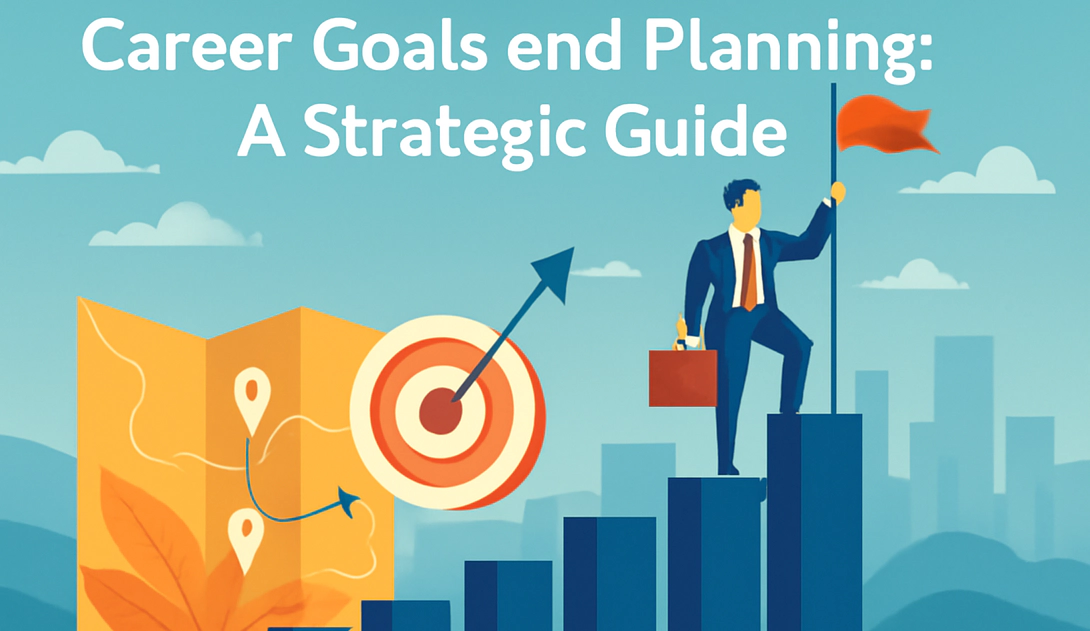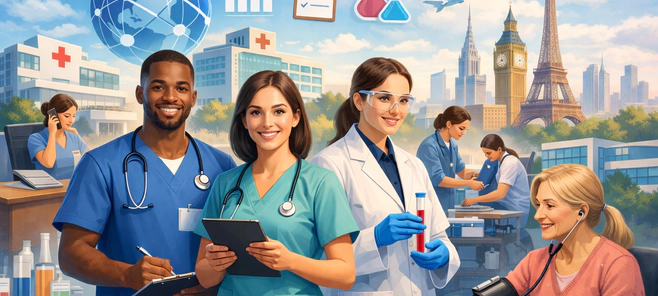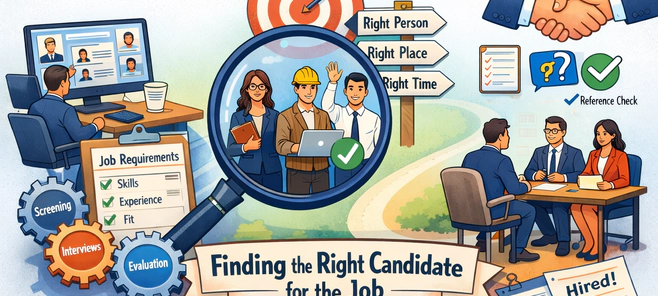We all know the word “career.” Most people believe they have a clear idea about it. Unfortunately, many think that a career only means a job or profession. But the word “career” covers a vast area. It is related to our goals. It is a process, one that includes many steps, plans, and preparations. There is short-term and long-term planning. To achieve our final goal, we need strategic planning aligned with our long-term career vision.
What is a Career Goal?
Career life is like an ocean. Before entering professional life, we often assume that simply touching the water means success. But when you actually enter the ocean, you may find yourself lost without direction or protection.
So, before starting professional life, we must set a destination. A career is not just a job or profession; it’s a strategic plan and a continuous growth process. Your career can evolve if you have a goal. And goals, too, are vast. There are short-term, mid-term, and long-term goals. We must align our professional plans and preparations with our ultimate objective. To succeed, we need a solid understanding of different types of career goals and examples.
Career Goal Importance
A career goal is like a direction. Without direction, people become more and more stuck in complex situations. It can happen that you don’t have a highly ambitious goal, but you must be clear and specific about your goal. Millions of people get stuck in the same position or designation for years. A career is a process of growth.
This goal also helps with motivation. If you achieve small or short-term goals, it gives you the confidence that you are achieving something. So it is necessary to build up a clear career goal.
Different Types of Career Goals & Examples
Life Goal
Most people never realize that everyone needs a life goal. Many leave this world without knowing theirs. For career planning, understanding your life goal is essential.
Simply put, a life goal answers the question, what do you want to achieve in your life?
It is not only about your profession. A profession is just a small part of your life goal. Find what makes you happy. Identify the activities that relax and inspire you.
** Examples:**
- Someone might want to live a healthy life with their family
- Another may wish to live an adventurous life
- Someone may aim to leave behind a legacy of good work
So, ask yourself, what is your life goal?
Short-Term Goal
Short-term goals are usually achievable within one year.
Examples:
- Losing 5 kg in three months
- Saving $2,000 in a year
Mid-Term Goal
Mid-term goals often span 1 to 5 or even 7 years.
Examples:
- If you’re an executive aiming to be a CEO, a mid-term goal could be becoming a manager or assistant manager within 3 to 5 years
- Another mid-term goal could be buying a car within five years
Long-Term Goal
Long-term goals are your ultimate destination. They may take 10, 15, or more years to achieve. These goals rely heavily on successfully executing your short- and mid-term plans.
Examples:
- Becoming a CEO or one of the top five business leaders in your region
Strategies for Achieving Career Goals
We now understand that a career isn’t just starting a job or dreaming big. A career is a process, achieved step by step through:
- Short-term career planning
- Mid-term career planning
- Long-term strategic execution
Let’s break down each phase with its purpose and action plan.
Short-Term Career Planning
Think that you want to go to the market, and it is 5 km away from your home. To arrive at the destination, you have to select the pathway and the right planning. You can go there on foot, or by bicycle, or by car. So, it depends on you, how you want to go.
Now you have to find out how much time you have. Do you have a car? Is the road suitable for a car, or is it better to go by bicycle?
You think it is easy to go by bicycle, but after you complete your market shopping, it is very tough to return with all your groceries by bicycle. I think you are clear now.
Our market is a place, but our main goal is shopping and returning to our home. So if we don’t have a strategic plan, it can happen that we complete our shopping, but cannot return.
If your goal is to become a CEO, you must start from entry-level jobs. Finding the right opportunity can be hard. Explore different job categories worldwide through platforms like Crawljobs to match roles with your skills and aspirations.
Action Points for Short-Term Career Planning:
- Secure a professional entry-level job within one year
- Skill up continuously through training and courses related to your field
- Seek mentorship and feedback regularly to improve your performance
- Explore different jobs to expand your opportunities
- Build a habit of setting monthly or quarterly mini-goals for steady progress
Mid-Term Career Planning
Mid-term goals (2 to 10 years) are crucial and require adaptability. After your first promotion, aim to rise higher. This is the time to acquire managerial-level skills.
Write down what skills are required for your desired position, both hard and soft skills. Also, prepare for changing life situations.
Action Points for Mid-Term Career Planning:
- Set clear skill development goals for managerial roles
- Enroll in professional courses or degrees relevant to leadership
- Build a financial safety net for emergencies
- Have contingency plans for career breaks (online learning, freelancing)
- Identify potential organizations for future job switches
- Review and adjust your career plan regularly
Long-Term Career Planning
Long-term goals may take 10 to 15+ years. Many people give up midway. But those who persist with a strategy often succeed.
Becoming a CEO might be just one milestone. Once achieved, don’t stop. Continue learning, networking, and evolving.
Action Points for Long-Term Career Planning:
- Continue professional growth beyond initial achievements
- Polish leadership, networking, and strategic skills are continuously
- Set evolving goals as you reach milestones
- Reflect regularly on your career vision and adjust as needed
Remembering Thoughts for Career Goal
Plan B
Life is uncertain. Our plans are uncertain. It is not always possible that what we thought would happen will happen exactly the same way. That’s why at every point or step, we should consider a Plan B. We set our goal with a specific profession, but we also have to consider some other professions and different skills. These skills can help us in times of troubleshooting.
If we are in trouble with our main plan, we can do a part-time job, a remote job, or freelance work using our other skills.
It can happen due to a technological revolution that our whole plan might change. That’s why Plan B is important.
Take a Pause and Reflect
In the competitive world, we are all running. In our constant focus on work, we forget to take a pause, to take a deep breath. It is necessary.
It is not mandatory to always look forward. It is also necessary to reflect on previous steps. There can be good moves, and there can be many failures. Pause and reflection help you learn from failure. It helps your future moves and makes you mature.
Don’t Be Rigid
Proper knowledge makes us mature. Sometimes, overconfidence or experience makes us rigid. We start believing we are always right. We stop observing the whole situation from a holistic perspective.
There will be lots of suggestions throughout our career journey. We should observe and give deep thought. A simple idea from another person can help us be more aligned or more successful.
Focus Your Dream
There is a common problem called distraction. Sometimes we get distracted from our tasks or activities. Personal and social pressures can distract us.
To improve focus, try mental exercises. Write down your goal regularly. Dream about your situation after achieving your goal. Remember your hard work. These things will help you stay focused.
Comfort Zone
These days, the comfort zone has become an important factor. There are moments or periods when we get everything we need and become happy because we are in a comfort zone.
But we forget we are killing our time and opportunities. You are losing your productivity. If you feel too relaxed in your job, company, or organization, it’s high time to reflect.
Motivate Yourself
We focus on hard work. Sometimes we become workaholics and forget to motivate ourselves. This can lead to depression or reduced productivity.
In your career journey, you must cheer yourself up. Sometimes we should even cheer up our failures. Take time for your hobbies, rest, family, and social engagement. It will refresh you and recharge you.
Final Thoughts
A career is not built in a day. It requires a vision, a strategy, and action. Start by setting your goals, breaking them into achievable steps, and staying consistent. When short, mid, and long-term plans align, your career journey becomes more purposeful and rewarding.






